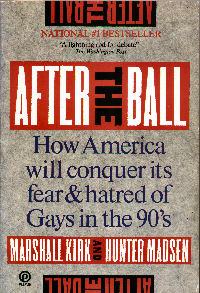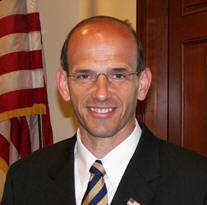By banning gay rights, Maine could allay the harm done to society by men with ties to our state.
by Michael S. Heath

‘After the Ball’ put forth in 1989 a marketing plan to equate opponents of homosexuality with irrational and hateful bigots. Sound familiar?
The following column by Mike Heath, executive director of the Christian Civic League of Maine and Chairman of the Board of Americans For Truth, appeared in the Maine Sunday Telegram April 13, 2008:
The largest of rivers begins as a small stream. That small stream tumbles and rushes down from the heights, joining other streams and tributaries, until together, they form a great torrent that sweeps away everything in its path.
The ideas that change the world are like rivers. They begin in well-trained minds and merge with other ideas until they become an irresistible force for change – and sometimes, revolution.
One such idea began in the First Parish Church in Brunswick, Maine. There, Harriet Beecher Stowe conceived the idea of a book about the miserable lives of slaves in the South. The novel she went on to write, “Uncle Tom’s Cabin,” spread her ideas far beyond Brunswick, inspiring an entire nation to take up arms against slavery. In the hands of a quiet woman, writing in Maine, a simple idea grew into the cataclysm of the Civil War.
Another earth-shaking idea can be traced back to Maine, and that is the sexual revolution. This idea has proven as deadly as Harriet Beecher Stowe’s idea was wholesome and life-giving.
The sexual revolution takes its name from a book written by Wilhelm Reich in 1929, called “The Sexual Revolution.” Another title for Reich’s book was “Sex in the Culture War.”
Reich maintained that the ills of the world could be cured by eliminating conservatism, love of country and respect for authority. The best way to do this, Reich believed, was to undermine sexual morality. For Reich, and many others on the left, the sexual revolution was only a way station on the road to real revolution.
Read the rest of this article »














